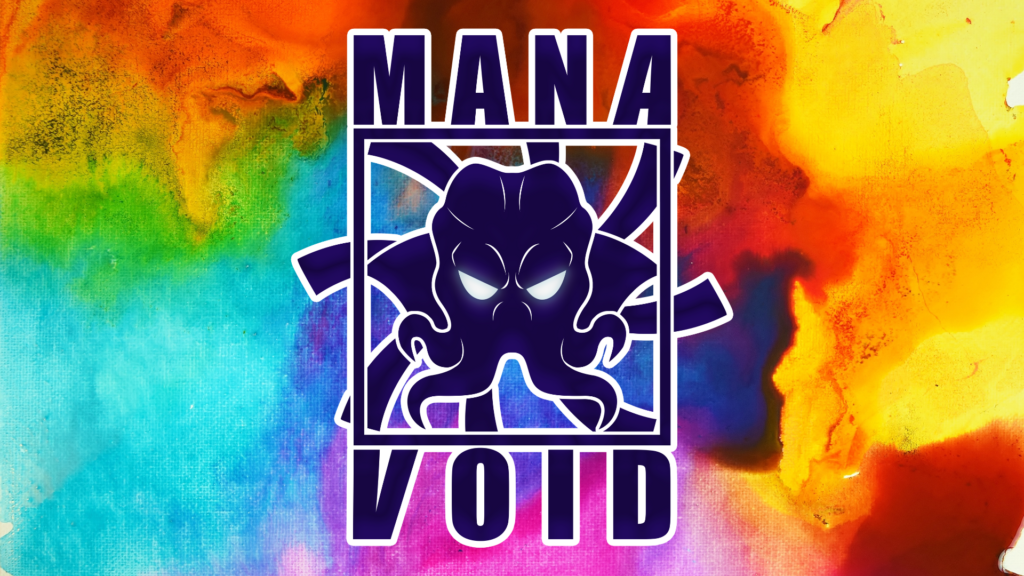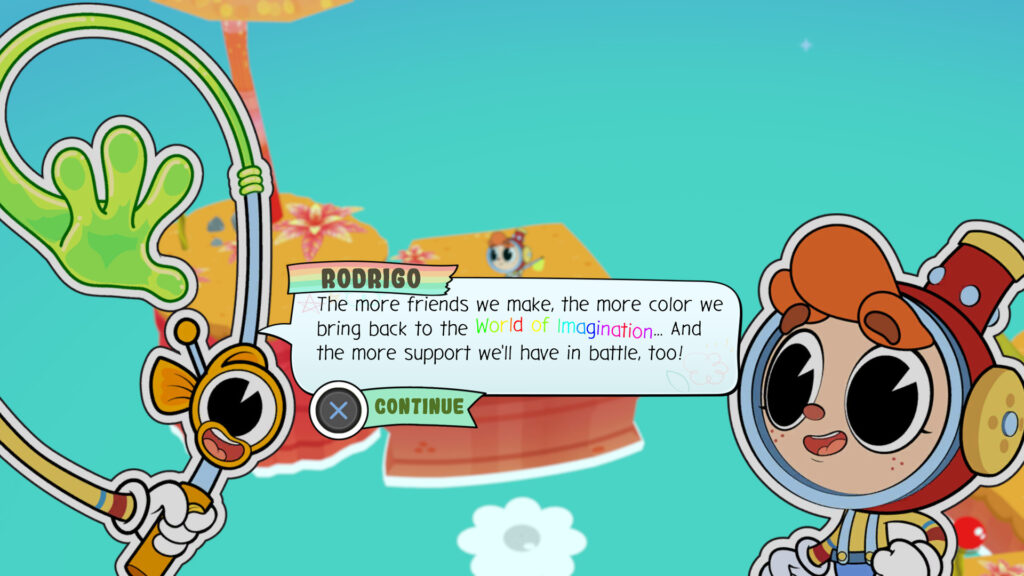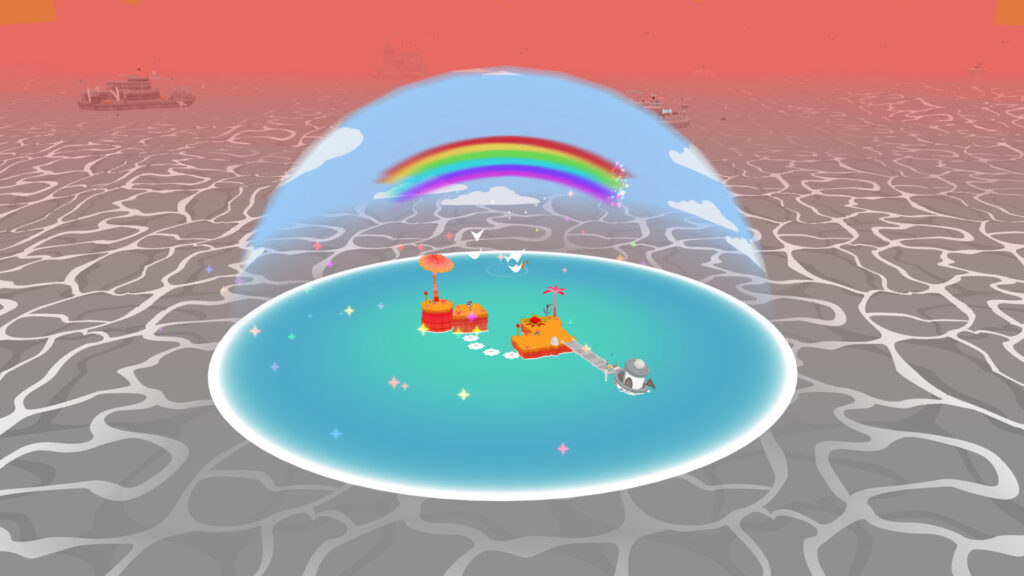
For ManaVoid, its core values of inclusion led them to create a non-binary icon
Video games progress towards including incredible, LGBTQ+ representation has slowly but surely been gaining ground over the years. Of course, while representation is all well and good, the people who make these games, the queer developers who are so keen to get their stories out into the world and into the hands of players, is just as important to talk about. That’s where ManaVoid Entertainment comes in.
ManaVoid Entertainment was founded in 2014 and have, thus far, developed two games. The first is Epic Manager, a game that can be described as a sport management game crossed over with a JRPG. The second is none other than Rainbow Billy: The Curse of the Leviathan – a game that blends everything that makes kids cartoons look so damn good with a progressive, not subtle at all, progressive story about friendship, love, and empathy.
If the premise of Rainbow Billy sounds familiar, then good. We mentioned in our review that the game has the earnestness of Steven Universe, and we weren’t messing around about that. It wants to tell you a sweet and meaningful story because what game doesn’t? But there’s more to it than that: the developers wants to tell a story that’ll appeal to a non-binary audience with Billy at the front and center.
We got the chance to talk more with ManaVoid Entertainment, namely Christopher Chancey (CEO) and Anthony Vaucheret (Art Director) about Rainbow Billy, the decision to make Billy non-binary and the importance of non-binary representation within video games.
Why did you decide to make Billy non-binary for this game and not give people the option to pick their pronouns?
After speaking with various consultants, we realized that at 8 years old, the concept of preferred pronouns doesn’t really exist yet. We wanted to make Billy a character that anyone could relate to, but at the same time we wanted Billy to feel unique and we wanted to showcase a character with a backstory that you don’t often see in video games. A child trying to understand how they fit in a world where everything is black and white was something we felt players could connect to. We are all constantly being pushed towards the mainstream, heteronormativity, we wanted to make sure that the game’s rhetoric was all about just being yourself and accepting others for who they are as well.
Also, although we definitely loved the immersive potential of choosing your own pronoun at the start of the game, the game is very narratively driven and in the end this is Billy’s story and you get to be along for the ride!
Rainbow Billy is about using empathy and friendship in order to bring colour back to the world. Do you feel that the current climate of the world has inspired tales like this?
We started designing the game back in 2018, at the time it felt like every video game, movie or tv show coming out was violent, dark, and gloomy. We wanted to create something that would bring more light and positivity to the world. In that sense, Rainbow Billy is very much a hope-punk game!
Our approach was very counterculture. To make a game all about empathy and positivity in a world so divided, where every subject is polarized, was interesting. White or black, true or fake, in the end the only solution is empathy. Admittedly, going to work on this game sometimes felt like a healthy respite from everything going on outside!

Did you feel the need to include Billy being non-binary in ways outside of simply stating they are non-binary? Do other characters know? Is it crucial to the game’s story?
It’s definitely core to the story. In the Rainbow Billy canon, Billy identifies as nonbinary with They/Them pronouns. As an 8-year old, Billy is just figuring things out and doesn’t yet understand the concept of gender identity – they just want to be happy, have fun and make friends!
There’s a layered story in Rainbow Billy that you can only understand fully if you get to the game’s credits. Billy’s coming of age tale is packed full of universal themes and exploring them through a child’s eyes and the eyes of those around them is definitely important.
I’ll also say this, Billy’s story goes way beyond what you’ll see in The Curse of the Leviathan, Billy’s identity will be something that will gain in importance as they get older and we hope to have the opportunity to get to that story!
There’s no combat in Rainbow Billy. Why is that?
A statistic came out in 2019, saying that 17% of games showcased at E3 were non-violent. We thought that was crazy, there’s so much fun to be had with games without having to resort to violence.
We decided to implement the confrontations system rather than a more traditional violence-based battle system because we really value putting empathy at the core of everything in Rainbow Billy. After all Billy is trying to save the world with empathy and compassion!
How does the use of colour express the story you want to tell?
We knew we wanted our game to be colorful, accessible and to showcase underlying themes that were close to our core values. We began with a very game-related objective of starting with a black and white world and having to recolor it. When we got to figuring out story and themes, we began associating the black and white to binary “old ways” of thinking, our nemesis then came to become an ancient patriarchal figure, the Leviathan.
In recoloring the world, you would be understanding it and highlighting all the facets that make it vibrant and unique. Accepting this unicity of objects and people through color brought us to underlying representations of diversity and inclusion in the game.

How do you feel about how non-binary rep is in games?
It’s basically non-existent in mainstream games! When it does exist it often feels tacked on or opportunistic. We feel there isn’t enough representation of a variety of different communities in video games. There is change on the horizon though, more and more games in development are exploring diversity in their subject matter and that’s awesome to see!
What do you want players to take away from the game?
First and foremost we want players to have fun! That’s the main goal of any video game isn’t it?
If on top of that someone walks away from the game feeling cheered up or somehow encouraged in their own life after a certain dialogue in the game, then that would be awesome.
Finally, if players come out of the experience with the understanding that putting yourself in someone else’s shoes gives perspective, that nobody is the enemy of their own story, and that an honest conversation can oftentimes go a long way, then we will have made the world a better place!
What makes Rainbow Billy unique in comparison to similar games like Chicory?
First of all, Chicory is an awesome game and everyone should go encourage them!
Although other games have mechanics that revolve around color, I think we’re proposing an experience that has never really been seen before.
Rainbow Billy: The Curse of the Leviathan is a wholesome non-violent 2.5D Adventure-Puzzle-Platformer with RPG elements . The game’s core design pillar is exploration, whether it be through the world itself, the game’s mechanics, dialogues, puzzle solving or even exploring a creature’s hidden colors to better understand them, we want players to explore and be amazed at the many facets of this fantastical 20-hour experience.
Although the game looks like a 3D platformer on the surface, there are many inspirations from other genres that are elegantly integrated to make this a game as unique as its underlying themes of diversity and inclusion. A variety of environmental puzzles are scattered throughout the world to keep the experience fresh and give players something to think about as they navigate the seas recoloring each island on their path.
Also, to recolor the creatures Billy finds along the way, you must interact with them through dialogue to better understand them and their unique colors. These confrontations are played in a turn-based RPG-style collectible card game where each creature you befriend becomes another card in your deck!

How important is inclusivity and diversity for ManaVoid?
It’s extremely important! Creating video games is so incredibly complex, so many people need to come together to make things work elegantly together: Programmers, designers, artists, animators, composers, and so many more… The variety of points of view on a project, seeing the game through the lens of different life experiences, makes the project that much richer and engaging for anyone who plays it.
We are a culture-first company, it’s cliché to say but we really do feel like it’s a family at ManaVoid! People from all walks of life participated in pitching ideas and making this game what it has become. Regardless of gender, race, sexual orientation, seniority or work specialization, everyone was listened to, and every idea was considered. Video games are works of art, collectively built, and collectively played. The concept of community is important to us, and we hope that this game touches a variety of communities through the themes and stories we’ve put into the project!
What do you feel developers can do in order to make their games more inclusive?
I think it all starts with surrounding yourself with a diverse group of people with unique points of view. That alone will generate some awesome discussions when it comes to new design ideas or implementations in the game.
You also need to be open-minded and to listen. Making games is a collaborative process, make sure your teams feel like they can be honest and be heard when they feel strongly about something.
Finally, don’t be afraid to add some diversity to your characters and your storylines. You often hear things like: “Oh I didn’t want to make the main character gay because I’m not gay myself and I don’t want to misrepresent.” I think the reflex is good, you want to do justice to the communities you’re presenting in your game for sure, but if your solution is to simply cut them from the game, then you’re still part of the problem! Even if you aren’t part of a specific community, there are so many diversity consultants out there that are more than willing to help you tell the story you’d like to tell, work with them!
Rainbow Billy: The Curse of the Leviathan from ManaVoid Entertainment is available for PC over on Steam, as well as PS4, Xbox One and the Nintendo Switch.






